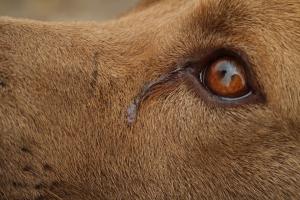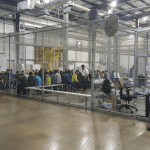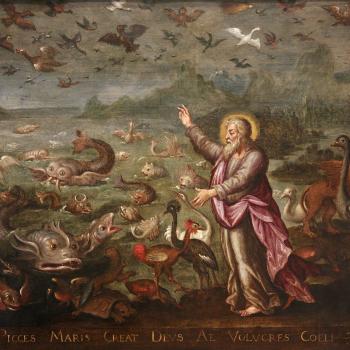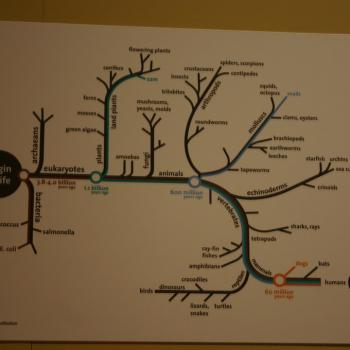
Humans are called to have a merciful, indeed, compassionate relationship with animals.[1]They are sentient beings. God has granted them their own particular status in the world, a status which humans are meant to respect and protect. They should not be abused. They should not be mistreated. To abuse them, to neglect them, to lack compassion to them can be seen as a kind of disrespect for God himself. What artist would be satisfied if someone took their work of art and defiled it? God, who is the greatest artist of all, certainly will not be not pleased if we harm his beautiful work. This can be seen as a reason why the Catechism of the Catholic Church suggests we should look at the lives of the saints to find ways in which we can properly relate to animals:
Animals are God’s creatures. He surrounds them with his providential care. By their mere existence they bless him and give him glory. Thus men owe them kindness. We should recall the gentleness with which saints like St. Francis of Assisi or St. Philip Neri treated animals.[2]
This gentleness, St. John Chrysostom thought, was natural to the saints; as they grew in holiness, they grew in compassion, so that they took pity on all who suffer, including “unreasoning creatures”:
For the souls of the Saints are very gentle and, loving unto man, both in regard to their own, and to strangers. And even to the unreasoning creatures they extend their gentleness. Wherefore also a certain wise man said, “The righteous pities the souls of his cattle.”[3]
The International Theological Commission’s 2004 document, Communion and Stewardship: Human Persons Created in the Image of God, likewise saw the stewardship God gave to humanity includes a responsibility to animals and their well-being:
This responsibility extends to the animal world. Animals are the creatures of God, and, according to the Scriptures, he surrounds them with his providential care (Mt 6:26). Human beings should accept them with gratitude and, even adopting a eucharistic attitude with regard to every element of creation, to give thanks to God for them. By their very existence the animals bless God and give him glory: “Bless the Lord, all you birds of the air. All you beasts, wild and tame, bless the Lord” (Dn 3:80-81). In addition, the harmony which man must establish, or restore, in the whole of creation includes his relationship to the animals. When Christ comes in his glory, he will “recapitulate” the whole of creation in an eschatological and definitive moment of harmony.[4]
Animals suffering, especially when it comes as the result of something humans have done to them, should be a serious concern. Scripture shows that God, in taking care of humanity, had an interest in the well-being of the animal world. When the Sabbath day rest was established, God intended it for all, including animals:
Six days you shall do your work, but on the seventh day you shall rest; that your ox and your ass may have rest, and the son of your bondmaid, and the alien, may be refreshed (Ex. 23:12 RSV).
Likewise, enmity between two feuding persons, or groups of people, should not be used as an excuse to ignore the well-being of animals caught in the crossfire of such conflict; they are to be cared for:
If you meet your enemy’s ox or his ass going astray, you shall bring it back to him. If you see the ass of one who hates you lying under its burden, you shall refrain from leaving him with it, you shall help him to lift it up (Ex. 23:4-5 RSV).
God even suggests that mistreatment of animals is serious enough that those who unjustly slaughter an ox can be seen to be like those who commit murder:
Thus says the LORD: “Heaven is my throne and the earth is my footstool; what is the house which you would build for me, and what is the place of my rest? All these things my hand has made, and so all these things are mine, says the LORD. But this is the man to whom I will look, he that is humble and contrite in spirit, and trembles at my word. “He who slaughters an ox is like him who kills a man; he who sacrifices a lamb, like him who breaks a dog’s neck; he who presents a cereal offering, like him who offers swine’s blood; he who makes a memorial offering of frankincense, like him who blesses an idol. These have chosen their own ways, and their soul delights in their abominations; I also will choose affliction for them, and bring their fears upon them; because, when I called, no one answered, when I spoke they did not listen; but they did what was evil in my eyes, and chose that in which I did not delight” (Isa. 66:1-4 RSV).
While Scripture shows more regard for what happens to humanity over the rest of creation, it rejects that as being an excuse to focus on the good of humanity alone. Animals deserve respect. They glorify God and to silence them, to put them out, or to abuse them, is unacceptable. Not only does it show something of the character of those who would act in such a manner, for someone who is willfully cruel to animals will likely be cruel to their needy neighbor, such abuse shows someone has no regard for God. They are selfish, thinking of what they can get out of creation instead of how to be good stewards of it out of respect for God. Thus, Pope Francis in Laudato si’ explains that our attitude towards animals shows what is in our heart:
Moreover, when our hearts are authentically open to universal communion, this sense of fraternity excludes nothing and no one. It follows that our indifference or cruelty towards fellow creatures of this world sooner or later affects the treatment we mete out to other human beings. We have only one heart, and the same wretchedness which leads us to mistreat an animal will not be long in showing itself in our relationships with other people. Every act of cruelty towards any creature is “contrary to human dignity.”[5]
Tom Regan, talking about animal rights, explains what it means to be cruel:
Cruelty fares no better. People or their acts are cruel if they display either a lack of sympathy for, or worse, the presence of enjoyment in another’s suffering. Cruelty in all its guises is a bad thing, a tragic human failing.[6]
Those who have no problem making animals suffer, those who abuse animals, show what is in their heart; animals often are mistreated because they are weak and vulnerable, easily harmed by people who feel they will suffer no consequences for their actions. They like seeing others in their mercy, taking power over the life of another: it is a nihilistic urge which finds itself momentarily satiated in the mistreatment of animals. For others, they just are indifferent; they might not be interested in the power of making others suffer, but they are not interested in protecting others from suffering, and if someone gets in the way of a particular goal of theirs, they have no problem “doing what is necessary,” even if “what is necessary” causes harm. Cruelty can either be the point, or the means of some goal, but in either instance, the values of the person involved in such cruelty is revealed.
Often, those who are cruel do not understand the consequences of their cruelty. That is, they do not realize that as they do some harm to someone or something else, they can be said to be hurting themselves: “A man who is kind benefits himself, but a cruel man hurts himself” (Prov. 11:17 RSV). Their unrighteous behavior will have effects beyond their control: nature defiled will seek to balance itself.
Sadly, in the history of Christianity, cruelty to animals has often been justified through some sort of utilitarian ethics. That is, since we seem to gain something out of it, we do not have to worry about what we are doing. As Andrew Linzey notes, this goes contrary to what is related in Scripture where we can see God’s concern for the whole of creation:
Once the biblical insight is grasped that God really does care for all creatures, we are forced to grapple with an other-than-anthropocentric view of the world. What value (or use” other creatures may have to us is an entirely different issue form their value to Almighty God. We cannot assume (as does so much historical and contemporary theology) that what is of benefit to us is automatically God’s will. Our own estimation of our own needs and welfare cannot be the only basis for determining our relations with fellow creatures. Christian theology in that regard seems to have baptized an essentially utilitarian view of other-than-human-creatures. [7]
It is interesting to note that many who show utter disregard for what befalls animals often are the same ones who decry pragmatic, utilitarian approaches to morality; can they not see the self-contradiction when they try to justify their actions through such a utilitarian approach? Christian theology might point out other animals have a different ontological status than the rest of humanity, but that status still has objective standards, standards which are violated when a utilitarian approach to our actions towards them becomes the means by which our duties to them are undermined. If utilitarian ethics are wrong when being used to justify treating a fellow human as a mere object, then utilitarian ethics are wrong when they are used to treat any sentient creature as a mere object for our pleasure. We are responsible for them.
“A righteous man has regard for the life of his beast, but the mercy of the wicked is cruel” (Prov. 12:10 RSV). If we are to be righteous, we will show forth such righteousness naturally: we will treat with respect the whole of God’s creation. We will not abuse animals. We will not be cruel. We will not justify cruelty to others based upon the pleasure we get out of such cruelty. Our path to holiness will lead us to consider the whole of God’s creation, and we will see to do what we can to lift it up for the glory of God.
We are called to be people who follow after God and to be holy as he is holy. God is compassionate and merciful to all: God does not take someone’s status on the great chain of being as an excuse to be needlessly cruel to them. We should, therefore, not use what we think our place in the great chain of being as an excuse to look down upon and disrespect the rest of creation. We should show it respect, treating it with great care, following the way God treats us. We, after all, would find it terrible if he treated us in the manner in which we treated the rest of his creation. How God treats us with his love is how we should treat others. We must truly find our proper relationship with the world at large, taking into consideration the needs not only of our fellow humans but the needs of the rest of the world. Then we will have begun to take on and act upon the image of God which is within us.
[1] Obviously, this is true not just with animals, but with the rest of creation as well. Nonetheless we have a closer relationship with animals because of our evolutionary connection with them. Plus, we can say our greater concern for them could and should relate to their place on the great chain of being.
[2] Catechism of the Catholic Church. Vatican Translation. ¶2416.
[3] St. John Chrysostom, “Homilies on Romans” in NPNF1(11):546 [Homily XXIX].
[4] International Theological Commission, Communion and Stewardship: Human Persons Created in the Image of God. Vatican Translation. ¶79.
[5] Pope Francis, Laudato si’. Vatican Translation. ¶92.
[6] Tom Regan “The Struggle for Animal Rights” in Animal Rights: A Historical Anthology. Ed. Andrew Linzey and Paul Barry Clarke (New York: Columbia University Press, 2004), 181.
[7] Andrew Linzey, Creatures of the Same God: Explorations in Animal Theology (New York: Lantern Books, 2009), 13.
Stay in touch! Like A Little Bit of Nothing on Facebook.
If you have liked what you read, please consider sharing it with your friends and family!













